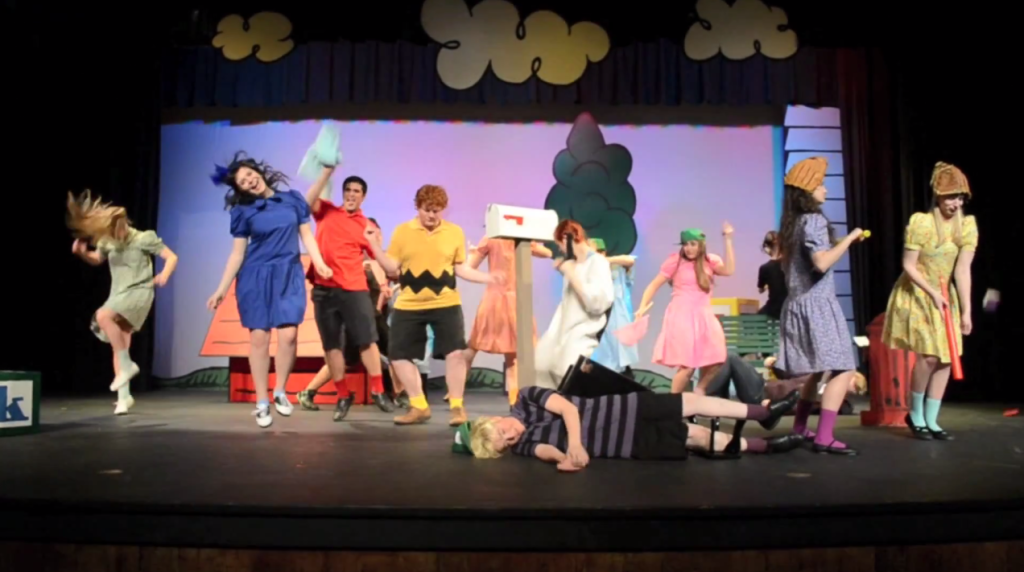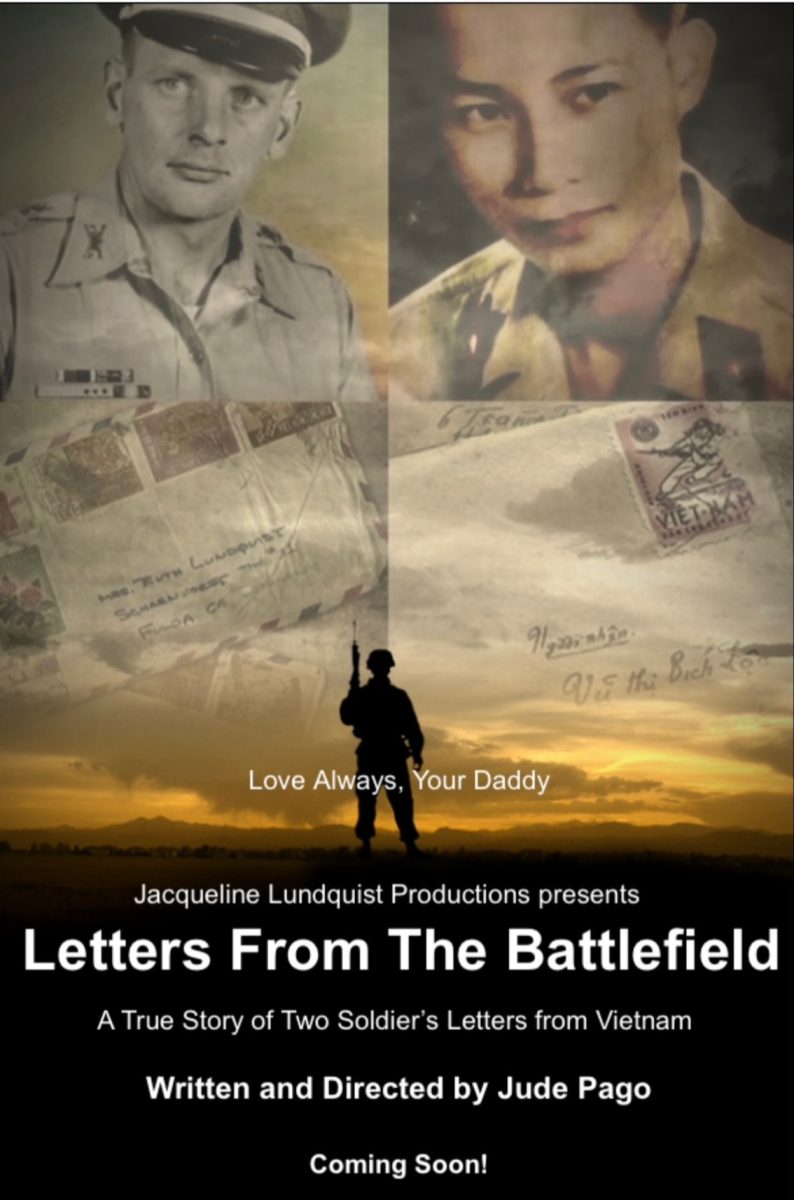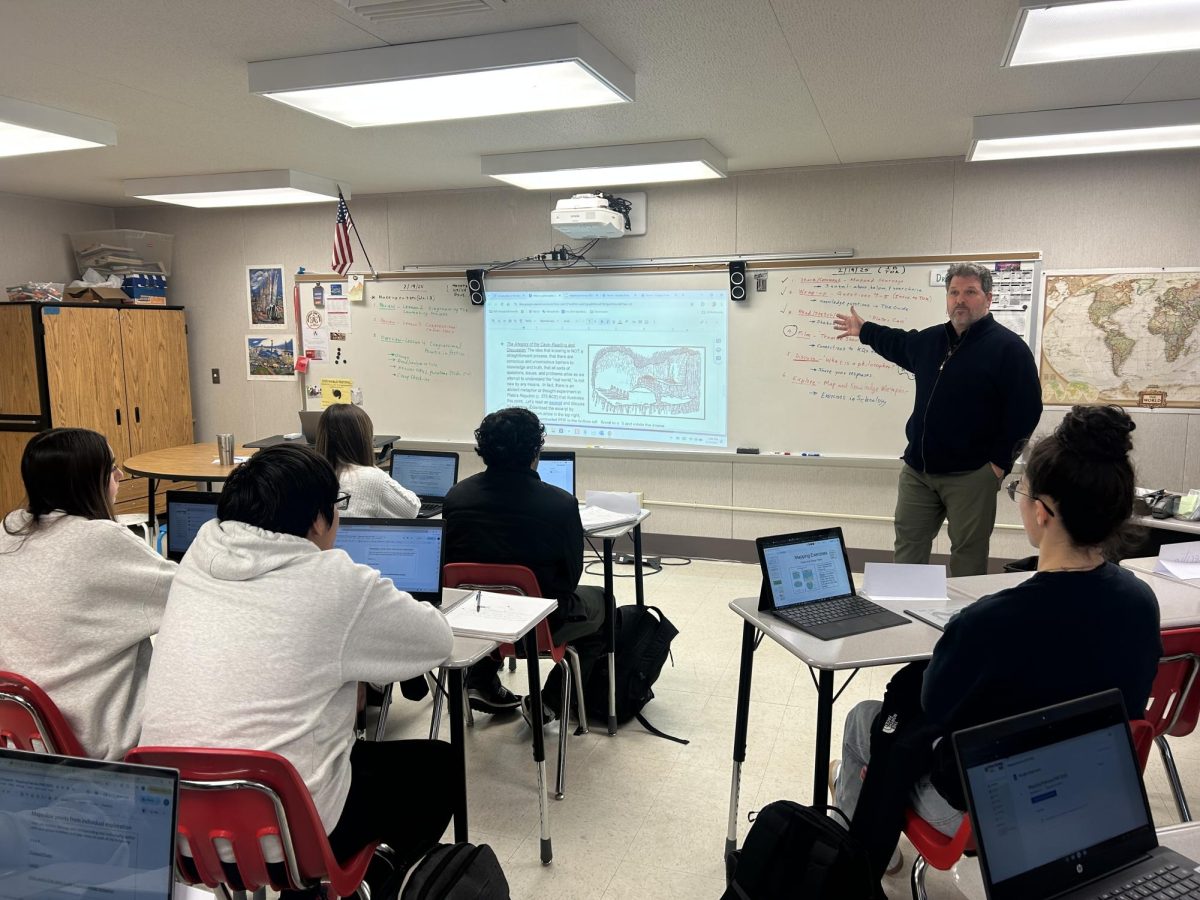At first I was skeptical. Could the AHS drama department really pull off a theatrical adaptation of the beloved children’s cartoon, Charlie Brown? When the lights began to flicker at 7 p.m., I took my seat in the auditorium with low expectations and a critical mind.
The play director and drama teacher, George Bennett, briefly announced the cast of characters in the production. Senior Andy Riddle, listed in the program as the understudy for Charlie Brown, would be playing the main role. Unfortunately, the original actor, junior James Barker, had recently fallen sick with a serious case of mono.
The five other main characters were senior Gwen Levey as Lucy, senior Harris Fitzgerel as Linus, junior Mark Slough as Schroeder, sophomore Deanna Gowland as Snoopy, and sophomore Melissa Haberle as Sally.
The curtains parted, and characters came on stage to sing the opening number, “You’re a Good Man, Charlie Brown.” The costumes were based on the original cartoon characters’ outfits. This introduction to the play acquainted the audience with the unique personalities of the characters.
With the employment of talent, the two-dimensional cartoon characters were transformed into dynamic characters with the depth of real people. The actors used lively song and dance and witty jokes to bring their characters to life.
Each role came with its own eccentricities. In a way, the various personalities held exaggerated examples of different character traits. Schroeder, the crazed musician, is obsessed with Beethoven. Sally is a stubborn and moody little girl who is determined to be herself.
The ironic personality of Linus was by far my favorite. A toddler who totes around a blanket and still sucks his thumb, Linus has the maturity of an adult and eloquence of a college professor. He manages to outsmart his bossy and tyrannical sister, Lucy, on several occasions.
Charlie Brown, an insecure but thoughtful little boy, was an endearing character. Many times his pitiful words evoked sympathetic sounds from the audience. Usually, a story’s main character is strong and admirable. The weakness in Charlie Brown appeals to the weakness in all of us. His character, though depressive and frustrating at times, was completely relatable.
Often throughout the play, the characters held profound philosophical conversations with each other. They explored topics that all of humanity grapples with: the meaning of life and the definition of true happiness. Through the eyes of children, the audience was given the chance to revisit their childhood and remember an age of innocence and discovery.
The cast received a standing ovation as they took their bows. Any trace of skepticism erased, I got to my feet and clapped loudly for the characters on stage. Charlie Brown had found happiness, and I’d found out that new lessons can be learned from old stories we heard as children.
The final showing of “You’re a Good Man, Charlie Brown” will be on Saturday, April 13 at 7 p.m. in the AHS auditorium. Tickets are $5 for students, and $10 for adults.











AndrewHRiddle • Apr 13, 2013 at 12:16 pm
our first review of “You’re a good man Charlie Brown”
http://t.co/ZdMCWhi1Y5.
ahstheablast • Apr 13, 2013 at 12:08 pm
To read a review about AHS’s “You’re a Good Man, Charlie Brown,” visit… http://t.co/BWlrxRiSDN